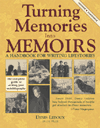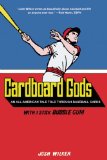Home
What
Story and Why
How to
Tell
What's
New
Blog
Research
is Fun
Get
Started
Highlight
Site
Sample
Writing
Free
Newsletter
Articles
About
Contact Us
Privacy
Terms

|
Thanks
For The Memoir
Article
by Tom Gilbert - © July,
2011
 Let us give thanks for the
memoir. It is the life story format that most offers insight and
meaning. I truly believe this because memoir doesn’t require
a full chronological reminiscence from birth to now. Instead, as Lisa
Dale Norton, author of Shimmering
Images: A Handy Little Guide to Writing Memoir,
puts it, "Memoir involves the whittling away of a whole lot of stuff
that you have lived and a focusing on one slim section, full of power,
that demands to be told". Let us give thanks for the
memoir. It is the life story format that most offers insight and
meaning. I truly believe this because memoir doesn’t require
a full chronological reminiscence from birth to now. Instead, as Lisa
Dale Norton, author of Shimmering
Images: A Handy Little Guide to Writing Memoir,
puts it, "Memoir involves the whittling away of a whole lot of stuff
that you have lived and a focusing on one slim section, full of power,
that demands to be told".
Norton’s book is a gem for giving insight into generating
deep life reflection, finding your voice, all the while inspiring you
with her poetic prose.
 Another
fine memoir guide is Turning
Memories into Memoirs by Denis LeDoux.
He’s been helping people with memoir and life story writing
(both authors and personal historians) since 1988 and his book works
like a textbook. Indeed, it is used in his workshops. He helps you sort
through memories, fit your story into a wider historical context, write
vivid dialogue and discover techniques to make your writing tighter,
better and meaning packed. Another
fine memoir guide is Turning
Memories into Memoirs by Denis LeDoux.
He’s been helping people with memoir and life story writing
(both authors and personal historians) since 1988 and his book works
like a textbook. Indeed, it is used in his workshops. He helps you sort
through memories, fit your story into a wider historical context, write
vivid dialogue and discover techniques to make your writing tighter,
better and meaning packed.
William Zinsser, noted writer and writer-helper, has an excellent
“how-to” article on memoir writing (here). He includes some sage
advice, like not worrying about the privacy of others included in your
story while you are writing it (that could stifle you), but do be
considerate after the fact (you might show it to family members and
friends who should see it ahead of time). He also stresses writing with
honesty and insight and that the point of your memoir is not
“public therapy”. We’ve seen way too many
memoirs in recent years that are nothing but whining and griping and
airing dirty laundry. Your memoir should add something to the human
story – the one that links us all together. It is your unique
outlook on life and what it is all about. Resist the urge to use your
memoir as a club to strike back at all those who’ve wronged
you. Audiences prefer rising above struggles over revenge-tainted tales
of woe.
 Towards that end I thoroughly enjoyed the humor
and pathos of the coming-of-age tale I just finished reading by Josh
Wilker. Cardboard
Gods: An All-American Tale Told Through Baseball Cards
is not just the story of a kid growing up in the 70’s.
Baseball and his card collection gave him something to cling to,
something real, while he dealt with being raised in a decidedly unusual
family arrangement. It’s his journey from boyhood innocence
through young adult distress, cynicism and eventual redemption. Towards that end I thoroughly enjoyed the humor
and pathos of the coming-of-age tale I just finished reading by Josh
Wilker. Cardboard
Gods: An All-American Tale Told Through Baseball Cards
is not just the story of a kid growing up in the 70’s.
Baseball and his card collection gave him something to cling to,
something real, while he dealt with being raised in a decidedly unusual
family arrangement. It’s his journey from boyhood innocence
through young adult distress, cynicism and eventual redemption.
Reading a good memoir takes us on a journey. We all are on one. Writing
your memoir can teach important life lessons, both to you and others.
Do that and we’ll be thanking you for the memoir.
|








 Let us give thanks for the
memoir. It is the life story format that most offers insight and
meaning. I truly believe this because memoir doesn’t require
a full chronological reminiscence from birth to now. Instead, as Lisa
Dale Norton, author of
Let us give thanks for the
memoir. It is the life story format that most offers insight and
meaning. I truly believe this because memoir doesn’t require
a full chronological reminiscence from birth to now. Instead, as Lisa
Dale Norton, author of 
 Towards that end I thoroughly enjoyed the humor
and pathos of the coming-of-age tale I just finished reading by Josh
Wilker.
Towards that end I thoroughly enjoyed the humor
and pathos of the coming-of-age tale I just finished reading by Josh
Wilker.